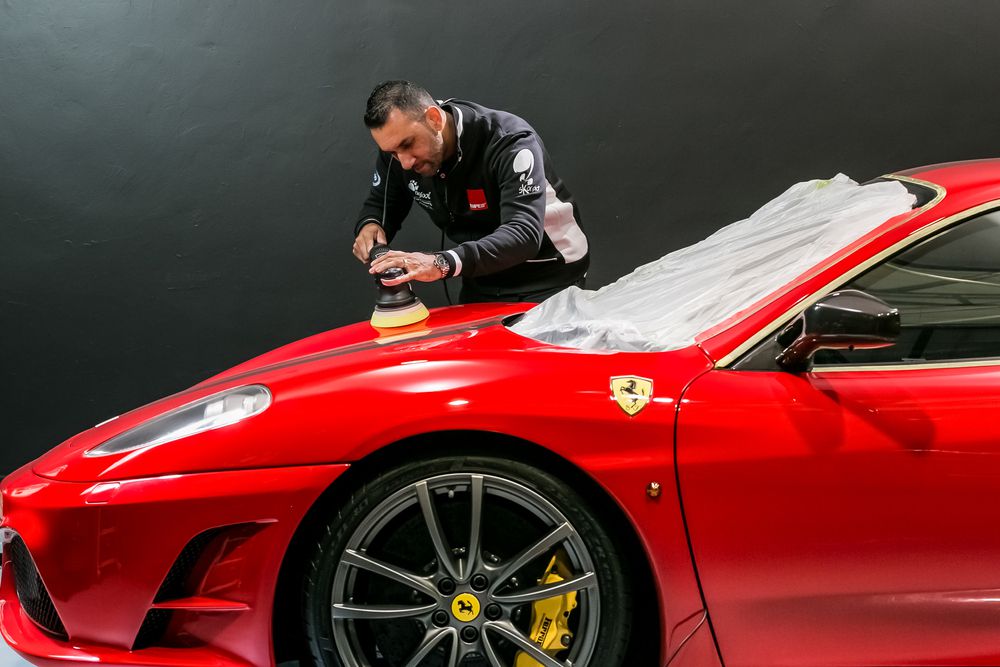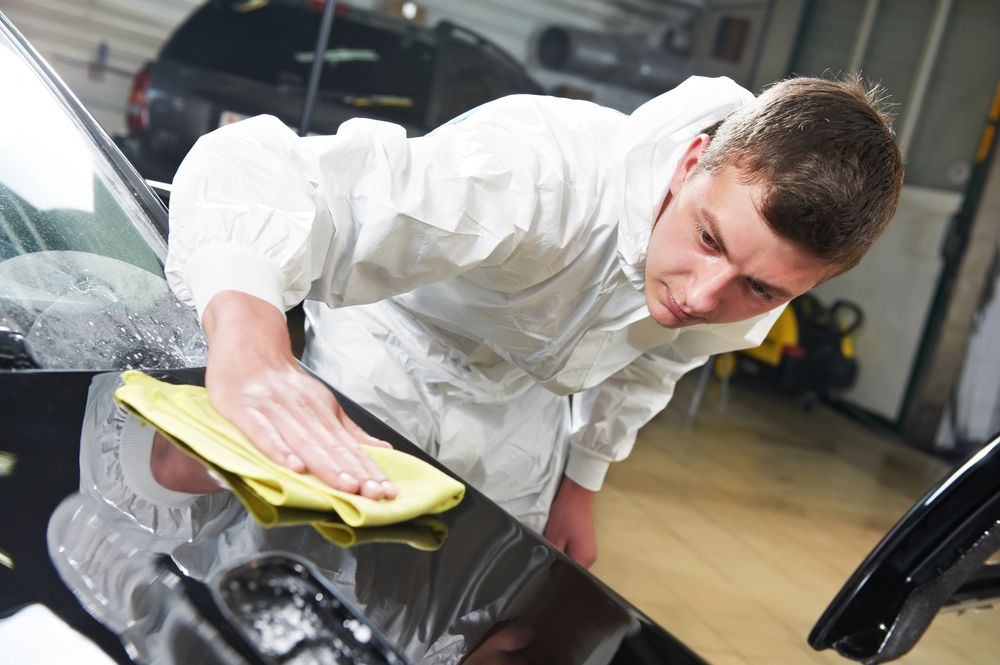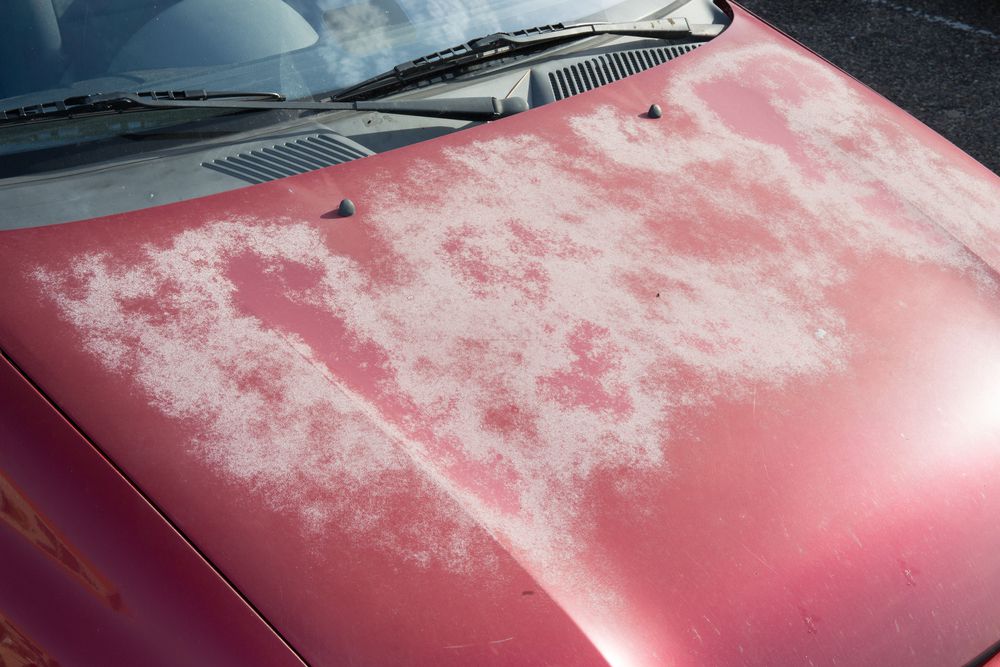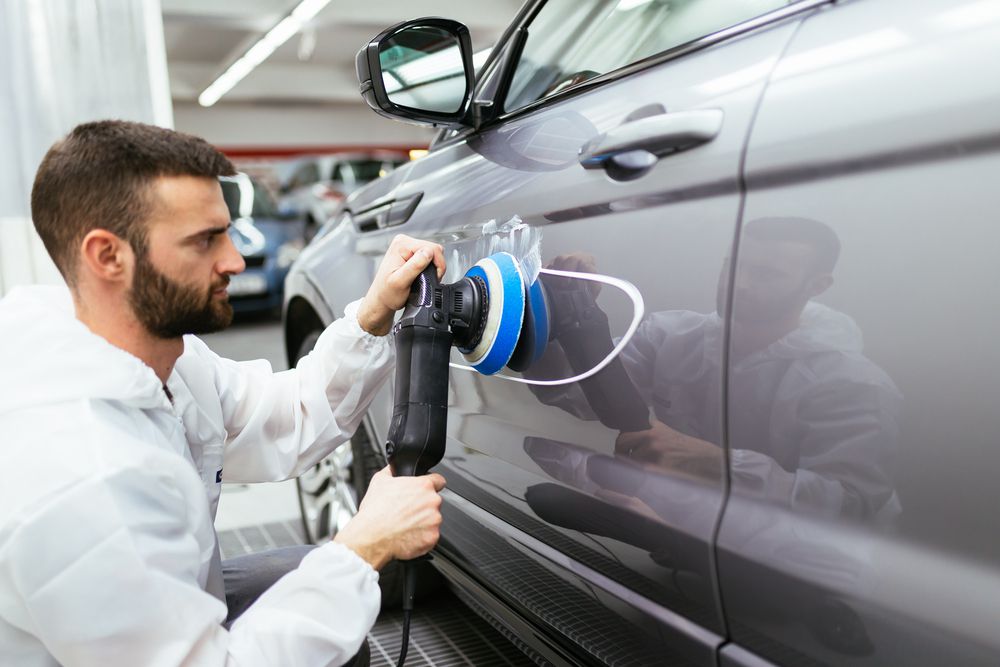In addition to washing your car with soap and water, you should apply a
layer of car wax to bring out the shine and protect its paint.
But how long does wax last on a car?
Car wax can last anywhere between four weeks and six months. How long
wax lasts on your car depends upon the type of wax you use, the wax
quality, the environmental conditions, and the method you use to wash
your car.
Synthetic waxes tend to be more durable than natural waxes, so they tend to
last longer. Similarly, you can only expect a cheap wax to last for a while
because of its low-quality composition.
A high-quality natural wax can last for as long as six months.
But, if your car remains outside in extreme climatic conditions,
environmental elements like sunlight and dust can shorten the lifetime of
your car wax. So can improper washing techniques and products. If you are
not careful, you'll end up stripping the protective layer of wax.
But why is waxing so important? What will happen if you don't wax your car?
 Applying wax by machine.
Applying wax by machine.
Is Waxing a Car Worth it?
Yes, waxing a car is worth it. Waxing is a means of protection and
increases the shine of your vehicle. In addition, it protects the paint
from contaminants. Car wax also fills some scratches, making your
vehicle appear practically new.
An average car lasts for about 15 years. But regular
maintenance can help yours run a few extra thousand miles.
Washing may remove dirt and debris from your car's surface; waxing prevents
it from returning. In addition, it is a protective barrier that protects
your car's paint from damage. Here's how:
Fills And Prevents Scratches
As you drive it on the road, contaminants like dirt and rocks leave behind
tiny scratches all over your car.
Waxing can fill light scratches which reduces their appearance.
Protects The Paint
When you leave your car outside, sunlight, snow, and acid rain can degrade
the car paint. Waxing helps prevent this damage by adding a layer of
protection on top of your clear coat. The wax will take all the damage, so
your paint doesn't have to.
It Makes Car Washing Easier
Wax prevents stubborn contaminants like sap and bug guts from sticking to
your car. Since they cannot make contact, you don't have to spend much time
treating them the next time you wash your car.
Brings Out The Shine
Waxing a car makes it shine. It makes the surface appear smoother and
sleek. So if your vehicle looks good after washing, waxing will make it
appear better. Almost new-like.
Does Car Wax Wash Off?
No, car wax does not wash off with car wash soap and water. That said,
frequent washing, harsh cleaners, and improper washing technique can
make the car wax fade quickly.
Car wax is mainly composed of oils and waxes. Hence, water cannot wash it
off because of its hydrophobic nature.
On the other hand, traditional soaps and detergents are harsh and can
remove most of the wax.
You should always wash your car with a dedicated car wash soap. They are
manufactured using a gentle formula that does not strip the wax.
It would help if you were careful while using tools like foam guns, power
washers, and foam canons, as they can be hard on the car's surface and wash
off the wax.
 Applying wax by hand.
Applying wax by hand.
How Often Should a Car be Waxed?
Generally, you should wax your car at least twice a year. However,
depending upon your climatic conditions, you can wax your car every
three or four months or with every seasonal change. Some people go as
far as to wax their cars every six weeks.
How often you wax your car dramatically depends upon the environmental
conditions your car drives in.
If you keep your car inside a climate-controlled garage, you won't need to
wax it as frequently. But if you park it outside, exposed to direct
sunlight or harsh winter weather, you will need to apply car wax more
often.
You can always check whether the wax remains on the car by observing how
the surface feels.
If your finger glides effortlessly and the surface feels smooth, you don't
need to apply more wax.
If it feels raw and resists your finger, you should reapply, no matter the
time lapse from the last application.
What Happens if You Never Wax Your Car?
Never waxing your car has adverse effects on your paint. It loses its
luster, fades faster, and becomes more prone to scratches.
Car wax is a shiny yet protective layer on top of your car paint. It
protects your car from UV rays that can damage the clear coat and prevent
airborne particles from lodging on its surface.
Never waxing your vehicle exposes it to a lot of problems.
Let's see what happens if you never wax your car.
Scratching
With its oily composition, wax makes most contaminants slide off the car's
surface without making any contact with the paint.
Not waxing your vehicle gives solid particles, like dirt and rocks, a
chance to create scratches and chips in your car paint.
These scratches look ugly and reduce the lifespan of your paintwork.
Rusting
Deep scratches can remove some of the clear coat and top coat. With them
removed, the metal underneath is exposed to the elements. The exposed metal
starts rusting, making the car unsightly and lowering its resale value.
If you park inside a garage, the wear will be quick. But if you park
outdoors, the weather elements will have no mercy on your unwaxed car.
 Car hood paint damaged by UV rays.
Car hood paint damaged by UV rays.
Sun Damage and Fading
Waxing your car helps protect its clear coat from sun damage.
Never waxing your car and parking it unprotected in direct sunlight causes
damage to the clear coat.
The UV radiation breaks the bonding between the clear coat and the top
coat, making it appear foggy and worn out.
Moreover, harsh sunlight is also a primary source of paint fading and
degradation.
Should I Wax My Car After Every Wash?
It is optional to wax your car after every wash. Doing so would be
overkill from a maintenance point of view. That said, waxing your
vehicle after every wash is harmless, albeit time-consuming.
Furthermore, doing so maximizes its protective aspects.
Waxing a car consumes a substantial amount of time.
Making it a part of your car washing routine requires you to put in some
extra time and effort.
Waxing your car after every wash will renew its protective barrier.
But if you don't want to invest extra time in car maintenance, waxing your
car twice a year or with every seasonal change is enough to protect it.
A high-quality wax can last as long as six months.
If you coat your car with such a product and are careful about it while
washing it, then there is no need to reapply it after every wash.
But if you have used a cheap car wax, there is a high chance that it will
wash out along with the soap, so you should apply some more after washing
your car.
How Much Does it Cost to Wax Your Car?
If you wax the car yourself, the only cost you will incur is for the
car wax itself — about $20 for a high-quality product. But if you opt
for a professional waxing job, the package can cost anywhere between
$50 and $150.
When you do it yourself, the only spending you will do is on purchasing the
car wax. A good-quality wax costs around $20 for a single container. The
labor that goes into the task is mostly free.
Alternatively, if you feel car waxing is tedious, you can also take your
vehicle to a professional. But that will cost you around $50 to 130 for one
session. In fairness, some of these sessions involve complete detailing,
including washing, drying, cleaning, and degreasing the entire exterior of
your car before the actual waxing.
Is it Better to Wax or Polish a Car?
While the terms are often used interchangeably, car wax and polish each
serve different purposes. Polish helps remove minor damage from your
car's paint. Wax makes it shiny and acts as a protectant.
Let's look at each in detail.
Polishing
Polishing is a means of repairing your car's paint. The car polish removes
the minor swirls and scratches on the clear coat.
 Polishing a car
Polishing a car
When you polish a car, you use a chemical to flatten the clear coat, making
it appear glossy.
Wax
Unlike polishing, waxing is a means of protection.
When you wax a car, you put a barrier between the paint and the damaging
elements.
Car wax also makes your vehicle shine like it did when you first saw it in
the showroom.
Conclusion
Waxing is an essential detail in your car maintenance routine.
It makes your car shiny and protects it from damaging environmental
elements.
Waxing your car after every wash is optional, but you should reapply it
whenever the wax coat appears thin.
Never waxing your car can cause your car paint to degrade quickly.
You can wax your car yourself or hire a professional to do it for you.
If waxing doesn't seem to fill in the scratches, you can try polishing the
car to reduce their appearance.
If that also doesn't work, consider a new paint job.